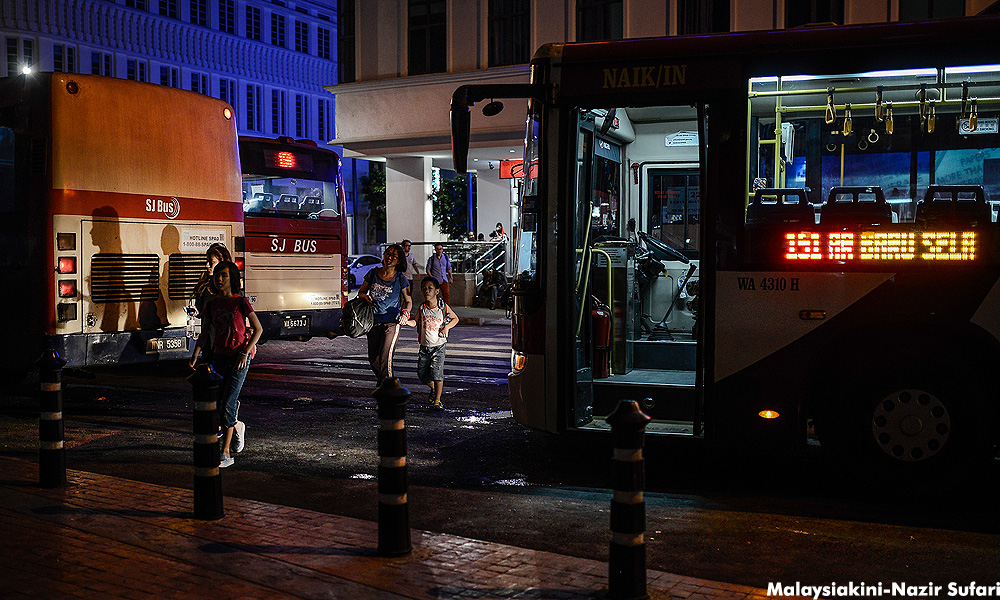This is the last article in a series to explain why the Penang state government should get an independent review of the Penang Transport Master Plan (PTMP).
ANALYSIS | Penang Forum, a coalition of public-interest civil society groups, has been vilified by some quarters with claims that it is opposed to the state for implementing a transport master plan. Nothing can be further from the truth.
Penang Forum is not opposed to a transport master plan. On the contrary, some members of Penang Forum had initiated and recommended to the newly-formed Pakatan Rakyat government in 2008 of the need for a comprehensive transport master plan for Penang; following which a Penang Transport Council was established by the state government. Several Penang Forum members were appointed to sit on the council.
Below is a summary of the major reasons Penang Forum has called for an independent review of the PTMP.
For one, the political landscape has changed. The original reasons for the Penang government to propose an undersea tunnel across the Penang Channel were that the previous BNl federal government might not approve a new bridge and did not allow the state to take over the ferry service. These reasons are no longer valid.
The state can now work with the federal government to improve cross-channel traffic through the upgrading of the existing ferry service or/and by introducing a rail link on one of the existing bridges. These alternatives are much less expensive and more environmentally friendly.
The tunnel and the three-paired road projects are mired in controversy with ongoing investigations by the MACC over the high costs of the feasibility studies. The Pakatan Harapan government should not allow itself to be dragged into this controversy and hence should scrap the projects.
This would make RM6.4 billion available for a genuinely sustainable transport master plan.
Property play instead?
The RM46 billion SRS plan seems to more of a property play than a transport master plan.
It puts more emphasis on a 4,500-acre land reclamation (three new artificial islands) than a cost-effective sustainable transport plan. It focuses on mega-infrastructure without creating an integrated public transport network.
Under the RM17 billion first phase, about half (RM8 billion) would be incurred by a 20km six-lane highway, making the plan overly focused on moving cars. This compared to Halcrow’s Plan that estimated a network of trams and buses in the region of RM9 billion.
The financial model of the PTMP puts Penangites and ultimately the federal government at great financial risk.
Using proceeds from the sale of reclaimed land to finance mega-infrastructure projects is financially risky because of a cash flow mismatch between revenue and expenditure.
Under the SRS proposal, the state would sell reclaimed land to raise funds for its transport infrastructure spending. But the process of land reclamation to raise funds for the state might take a longer time frame, and that, too, depending on the property market.
This could expose the government to great financial risks, as the relatively small bridging loans to be taken out (RM1 billion to RM2 billion) might be insufficient to cover the RM17 billion first phase of the SRS expenditure.
Moreover, SRS has chosen the most expensive public transport modes i.e. LRT (light rail transit) and monorail in contrast to the cheaper BRT (bus rapid transit) and trams proposed by UK-based engineering consultant Halcrow in the original PTMP.

The state has not conducted a proper comparative analysis of the financial viability of operating these various possible modes. Concerns have been raised over the projected ridership for the LRT that is vastly inflated and unrealistic.
The probable losses from LRT operations could financially burden the state and the people of Penang.
No compensation
The PDP model presents a conflict of interest. The project delivery partner (PDP) model, which was also used by the state in appointing SRS, presents a conflict of interest. Consultants recommending particular modes of transport might end up being involved in the actual construction as contractors, whether directly or indirectly, or as suppliers of materials.
It was also discussed in the third article in this series that the request for proposal (RFP) method the Penang government used to appoint PDPs is not an open tender system and hence does not deliver the best value for money for the people.
No compensation is payable if the state walks away from the agreement with SRS. The agreement between SRS and the Penang state government has not yet been signed and is pending several required approvals from the federal government.
As such, no compensation is required if the state does not proceed with the SRS proposal. There is still time left to make things right.
Engage globally recognised independent consultants to review plan.
For the above reasons, the state should appoint globally recognised independent consultants and experts in sustainable mobility to evaluate the SRS proposal in relation to the original Halcrow transport master plan.
One such agency is the award-winning Institute of Transportation and Development Policy (ITDP), a non-profit organisation which has a 30-year track record in promoting environmentally sustainable and equitable transportation policies and projects worldwide, particularly in medium-income countries. See here for more information.
The consultants' fees would be fairly inexpensive in contrast to the billions at stake with the PMTP.
READ MORE:
Part 1: Relooking the Penang Transport Master Plan
Part 2: How SRS’ Penang Transport Master Plan deviates from the original
Part 3: Was the Penang Transport Master Plan awarded with open tender?
Part 4: Why bulldoze through Penang undersea tunnel project?
Part 5: Why Penang’s expensive LRT plan must be reviewed
AHMAD HILMY is an associate professor at Universiti Sains Malaysia, while LIM MAH HUI is a former professor, international banker and Penang city councillor.
The views expressed here are those of the author/contributor and do not necessarily represent the views of Malaysiakini.

